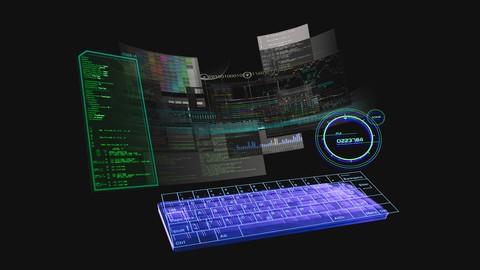Blockchain Technology In The Future: 7 Predictions For 2020
Blockchain Technology In The Future: 7 Predictions For 2020. Blockchain technology has become popular due to its successful adoption for cryptocurrencies like Bitcoin. This distributed digital ledger has many advantages as it can keep the records of all data or money transaction made between any two parties in a secure, immutable, and transparent manner.
Last year, the concept of blockchain started to capture public attention. Experts predict blockchain technology will be implemented for various industries and expect that the future of blockchain is to revolutionize traditional business processes. In The Future: 7 Predictions For 2020. However, the pros and cons of blockchain show that it’s not as easy to do as it seems.

Important Announcement – EasyShiksha has now started Online Internship Program “Ab India Sikhega Ghar Se”

1. Most Blockchain Startups Will Fail
Last year, we saw an increase in funding for blockchain startups. However, like any new technology, blockchain is still immature in its implementation, so it can unmeet the expectations of investors. As a result, many blockchain startups are expected to be just a waste of time and money. False starts in blockchain deployment will lead organizations to failed innovations, rash decisions, and even complete refusal of this innovative technology.Blockchain Technology In The Future: 7 Predictions For 2020.
The reason for this is that traditional enterprises require more transformation for blockchain deployment than newly-appeared businesses. According to Gartner, only 10% of traditional companies will achieve any radical transformation with blockchain technologies by 2023. In The Future: 7 Predictions For 2020.
2. Economy and Finance Will Lead Blockchain Application
Unlike other traditional businesses, the banking and finance industries don’t need to introduce radical transformation to their processes for adopting blockchain technology. After it was successfully applied for the cryptocurrency, financial institutions begin seriously considering blockchain adoption for traditional banking operations. Blockchain Technology In The Future: 7 Predictions For 2020.
Top Software Engineering Courses
Russian President Vladimir Putin was the first who proposed to issue “Crypto Rouble,” a national cryptocurrency. Obviously, it’s inevitable that governments will have to recognize the benefits of blockchain-derived currencies. At the rise of Bitcoin, governments expressed their skepticism regarding the particular application of cryptocurrencies. However, they had to worry when Bitcoin became a tradeable currency that couldn’t be controlled by any government. Blockchain Technology In The Future: 7 Predictions For 2020.
4. Blockchain Integration Into Government Agencies
The idea of the distributed ledger is also very attractive to government authorities that have to administrate very large quantities of data. Currently, each agency has its separate database, so they have to constantly require information about residents from each other. However, the implementation of blockchain technologies for effective data management will improve the functioning of such agencies. Blockchain Technology In The Future: 7 Predictions For 2020.
5. Blockchain Experts Will Be in High Demand
If you enter the industry and gain some experience in blockchain technology, it will serve you well. However, there is a risk that a blockchain startup that hired you may have to close down soon because of a lack of funding. Still, many people will prefer to quit their current job in order to work for a blockchain project. So, a high demand in experienced blockchain developers will also be one of the blockchain trends for 2020.
6. Blockchain Meets the Internet of Things
The International Data Corporation (IDC) reports that many IoT companies are considering the implementation of in their solutions. Therefore, IDC expects that nearly 20 percent of IoT deployments will enable blockchain services by 2019.
The reason for this is that blockchain technology can provide a secure and scalable framework for communication between IoT devices. While modern security protocols already appeared to be vulnerable when implemented to IoT devices, blockchain has already approved its high resistance to cyber attacks.
7. Law Integration Into Smart Contracts
Besides cryptocurrency, blockchain technology benefits us with another convenient possibility, such as “smart contracts.” The main idea of smart contracts is its automatic execution when conditions are met. For instance, delivering goods after payment is received. However, other conditions of contracts should also be automatically regulated. Thus, Insurers AIG is now piloting a blockchain system that allows creating complex insurance policies.
I hope you like this blog, Blockchain Technology In The Future 7 Predictions For 2020. To learn more visit HawksCode and EasyShiksha.
Empower your team. Lead the industry
Get a subscription to a library of online courses and digital learning tools for your organization with EasyShiksha
Request NowALSO READ: ficci-alliance-re-imagining-education-organising-webinar-good-screen
Get Course: Digital-Electronics-Tutorial-Course








































































